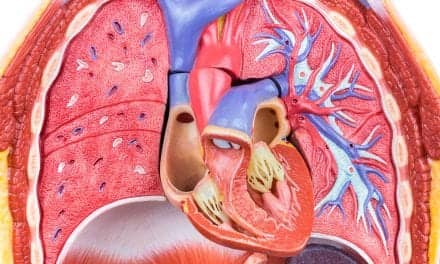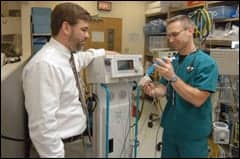Pulmonary arterial stiffening is an early driver of pulmonary hypertension, according to a new study published in the journal JCI Insight.
Increased stiffness of pulmonary arteries has been linked to increased mortality in patients with pulmonary hypertension, but it is not clear how stiffness develops or drives worsening of disease.
A research team led by Laura Fredenburgh of Brigham and Women’s Hospital showed that alterations in pulmonary arterial stiffness occur early during disease and promote vascular remodeling by altering signaling mediated by prostaglandins, a class of hormones that regulate inflammation, smooth muscle contraction, and vasoconstrictoin.
Using very high-resolution microscopy, Frendenburgh and colleagues detected vascular matrix stiffening in early stages of pulmonary hypertension in both humans and experimental animal models. Pulmonary artery smooth muscle cells grown on matrices with enhanced stiffness exhibited increased proliferation, contraction, and production of matrix proteins.
Additionally, the stiff matrix reduced production of a class of prostaglandins that are known to protect against vascular remodeling. Importantly, in a rat model, treatment with a prostaglandin analog reduced pulmonary arterial stiffening and attenuated pulmonary hypertension.










